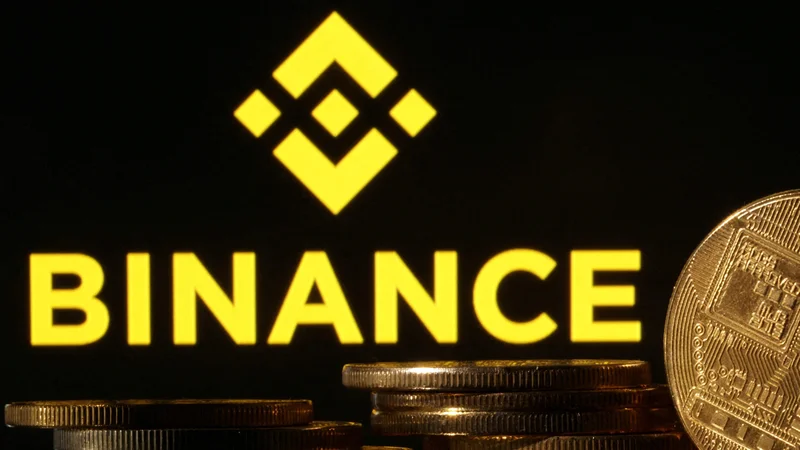The pardon of Changpeng Zhao was, on its surface, a political statement. The White House press release framed it as a corrective measure against a hostile prior administration, a defense of the burgeoning cryptocurrency industry. President Trump’s financial disclosures, however, suggest a far less ideological motive. They point not to a policy decision, but to a transaction.
When examining events of this nature, the official narrative is merely the starting point. The real story is almost always found in the numbers—the dry, unemotional figures recorded in financial filings and market data. In this case, the data trail is remarkably direct. The President’s most recent disclosure report reveals personal income exceeding $57 million last year from a single source: World Liberty Financial. This is the same crypto venture he and his sons launched in September, the issuer of the USD1 stablecoin.
This isn't a trivial sum; it's a significant financial artery. And that artery flows directly toward Binance. Shortly after the pardon was announced, an investment fund based in the United Arab Emirates committed $2 billion to purchase a stake in the very crypto exchange Zhao founded. The currency for that purchase? World Liberty Financial’s USD1 stablecoin.
The sequence is clean. A presidential pardon is granted to a convicted executive. That executive’s company then becomes the destination for a multi-billion-dollar investment, facilitated by a financial instrument that is, in turn, a source of immense personal profit for the president. Correlation, of course, does not equal causation. But when the data points align this perfectly in time and magnitude, ignoring the correlation is an act of willful ignorance. What is the statistical probability of these events being unrelated?
To smooth the public reception of the pardon, the administration deployed a specific and carefully chosen narrative. White House press secretary Karoline Leavitt’s statement insisted there were “no allegations of fraud or identifiable victims.” This is a masterful piece of misdirection. It is technically true that Zhao was not convicted of fraud. He was convicted of something arguably more systemic: failing to maintain an effective anti-money-laundering (AML) program.

Let’s be precise about what that means. An AML failure is not a paperwork error. It is the abdication of a primary responsibility for a financial institution, creating a permissive environment for illicit funds to flow. The entire purpose of such regulations is to prevent platforms from being used to move money tied to terrorism, drug trafficking, and child sex abuse. To claim there are no "identifiable victims" is to ignore the entire category of crime that AML laws are designed to prevent. The victims are diffuse, but they are very real. They are the targets of the criminals whose operations were laundered through the system.
I've looked at hundreds of corporate filings and legal settlements, and this particular rhetorical strategy is common when a corporation wants to minimize systemic failure. They reframe the argument to focus on direct, named victims, knowing full well the damage is indirect and societal. The White House is treating a national security-level financial crime as if it were a simple regulatory lapse.
Zhao himself seemed to understand the gravity of his failure far better than his political benefactors. “I failed here,” he told the court last year. “I deeply regret my failure, and I am sorry.” That is the language of someone acknowledging a significant breach. It stands in stark contrast to the administration’s dismissive framing. The question, then, is why the White House would work so hard to sanitize a crime that the perpetrator himself admitted was a profound failure. Does this serve a policy goal, or does it simply provide cover for a financially motivated decision?
The market’s reaction provides a clue. In the days following the pardon, Binance’s native token, BNB, didn’t explode upward in a fit of irrational exuberance. Instead, its price consolidated, holding steady around the $1,100 mark. This is not the behavior of a market celebrating a victory for crypto freedom. It’s the behavior of a market soberly processing new information and recalibrating risk. Traders are accumulating positions, waiting to see what happens next. They understand what this is. The pardon wasn't a liberation; it was an acquisition of political influence. Crypto exchange Binance, particularly its beleaguered Binance US arm, now has a powerful political ally, but that alliance came at a price.
This pardon has effectively mainstreamed crypto into the world of traditional power brokerage. The industry is no longer an idealistic outsider. It’s just another powerful lobby, capable of transacting for influence at the highest levels. The pardon wasn’t for Changpeng Zhao, the individual. It was for Binance, the institution, and the financial ecosystem connected to it.
Ultimately, the philosophical debate over crypto’s role in the economy is a sideshow. The pardon of Changpeng Zhao should be viewed through a much simpler, more traditional lens: it was a remarkably efficient exchange of value. The White House delivered a pardon that removes a significant legal and operational barrier for the world's largest crypto exchange. In return, a financial apparatus directly benefiting the President facilitated a multi-billion-dollar capital injection into that same exchange. The official statements about punishing the industry are noise. The $57 million is the signal. This wasn't policy. It was a payment.